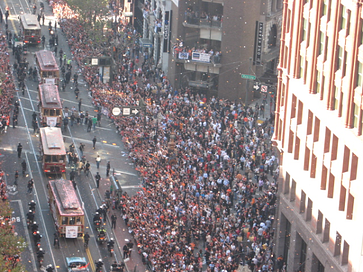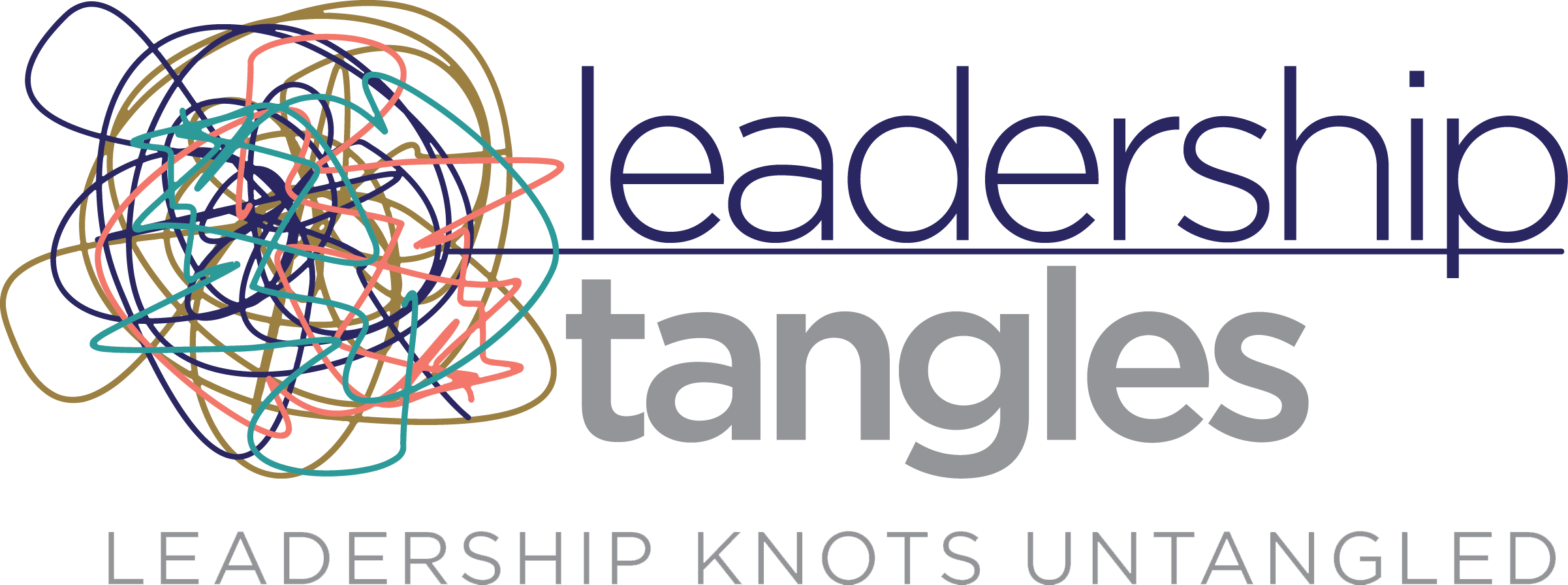 Okay, I admit it. I am a fair weather San Francisco Giants fan. I tuned in to the team in the last weeks of the series as they began their championship playoffs. I found myself playing catch up, learning the names and stories of the players. All of a sudden I really cared. As the Giants came closer and closer to winning the World Series, a goal that eluded them for 56 years, I put on my Tangle Doctor hat. How did the team's management orchestrate this turnaround? What can business leaders learn from a team that seemed so unlikely to win a championship trophy?
Okay, I admit it. I am a fair weather San Francisco Giants fan. I tuned in to the team in the last weeks of the series as they began their championship playoffs. I found myself playing catch up, learning the names and stories of the players. All of a sudden I really cared. As the Giants came closer and closer to winning the World Series, a goal that eluded them for 56 years, I put on my Tangle Doctor hat. How did the team's management orchestrate this turnaround? What can business leaders learn from a team that seemed so unlikely to win a championship trophy?
I watched the victory parade yesterday from a prime spot, the 16th floor balcony of my husband's law firm. The roar and energy of the crowd was palpable. It was impossible not to be excited and realize that we were witnessing a moment in history. We then watched the ceremonies from City Hall as our celebration continued. While watching the ceremonies, three clear lessons emerged.
No Egos and a Collective Mind
The San Francisco Giants management talked about a decision that they made last year at Spring Training. They agreed that everyone from the bat boy to the owner was on the same level. They threw out the hierarchy and everyone was treated equally and respectfully. This reminds me of an article Karl Weick and Karlene Roberts wrote about what they called "the collective mind." Those who work at dangerous places, like a nuclear plant or on an aircraft carrier, develop the ability to tune in to each other. They are able to read each other's signals and react quickly and spontaneously, without politics or hidden agendas. They all have to be on the same page. While it might be challenge to structure a complex, global corporation in a way that eliminates the power dynamics associated with different levels, I have worked with large corporations that strived to create an open culture.
Take Risks
Although I wasn't tuned in to the nuances of what happened last season, many of the commentators during the final few games noted that Bruce Bochy, the head coach made a number of player trades in July and August that were controversial. Apparently, he took a lot of ribbing in the press for some of his choices. For instance, Edgar Renteria was brought in on a two-year, $18 million dollar contract, and didn't play for a lot of those two years. Bruce was ridiculed for his choice. However, it was Renteria who made the game winning homerun in the final game of the series. Bruce Bochy trusted his instincts and took risks, even if they weren't popular.
What kind of risks are you taking in your business? Are you trusting your instincts to hire the best talent for your team? More importantly, are you willing to make changes when new hires are not working out? These are all part and parcel of creating a winning team.
Offer Training, Support, and a Vote of Confidence
Freddie Sanchez was traded from the Pittsburgh Pirates in July 2009. He didn't contribute a lot to the team last year and early this season due to injuries. This season, he started playing again three months into the season, in July.
During the City Hall festivities, Sanchez explained that this season, after one particular game, he was watching a tape from the previous day. He was down in the dumps. One of his coaches came in and asked him what was wrong. He said, "I'm disappointed in my performance." The coach said to him, "We hired you for a reason. We have confidence in you." He felt supported. In the corporate world, mistakes are not always tolerated. Sanchez didn't play well at first. However, he became a major asset during the playoffs. All of the players acknowledged the training, support, and votes of confidence that they received day in and day out from their training staff.
These three lessons are simple. They are not easy. They require leaders who are willing to create a culture that discourages hidden agendas, big egos, and intolerance for mistakes. They also require an ability to pick the right talent, and to tinker with the team until the chemistry is right. And they require a learning culture in which everyone feels a part of the whole.
The city of San Francisco enjoyed the rare treat of basking in a stunning victory. The roar of the crowd and the smiles on everyone's faces told the story. We like to win and we like winners. It is the process of getting there that is the challenge.
Is yours a winning team? Do you have the talent, culture, and courage to do what is needed to win? Contact me for a complimentary consultation.
Below, each cable car has two players. The parade is proceeding down Market Street to Civic Center.





